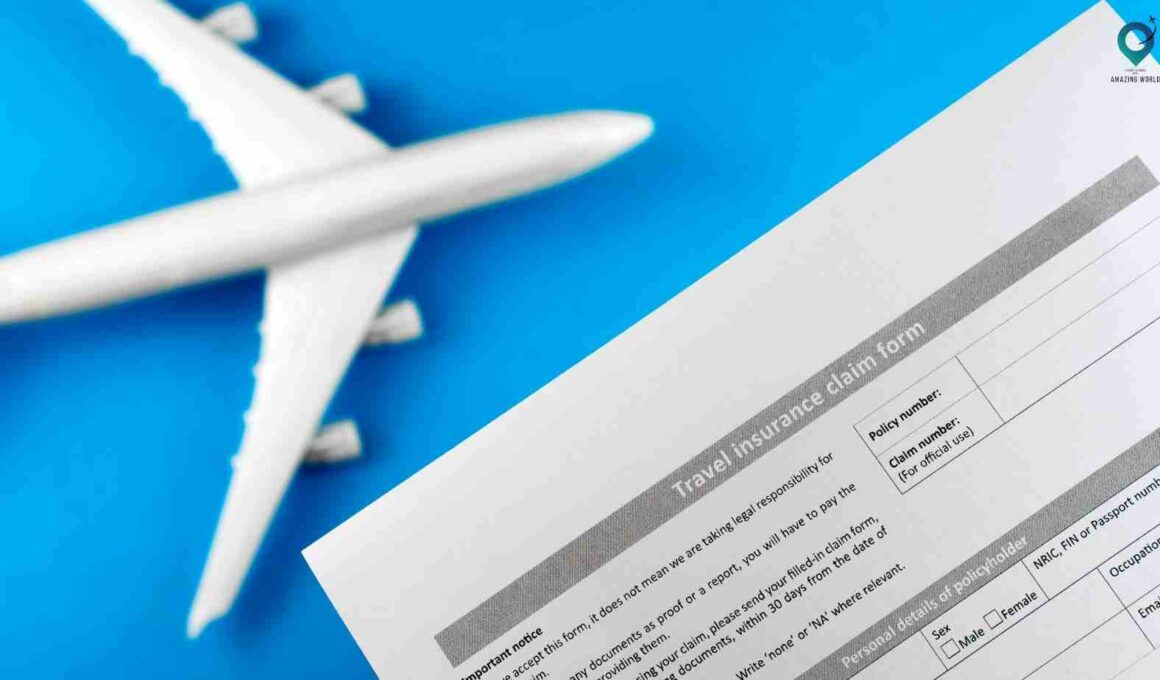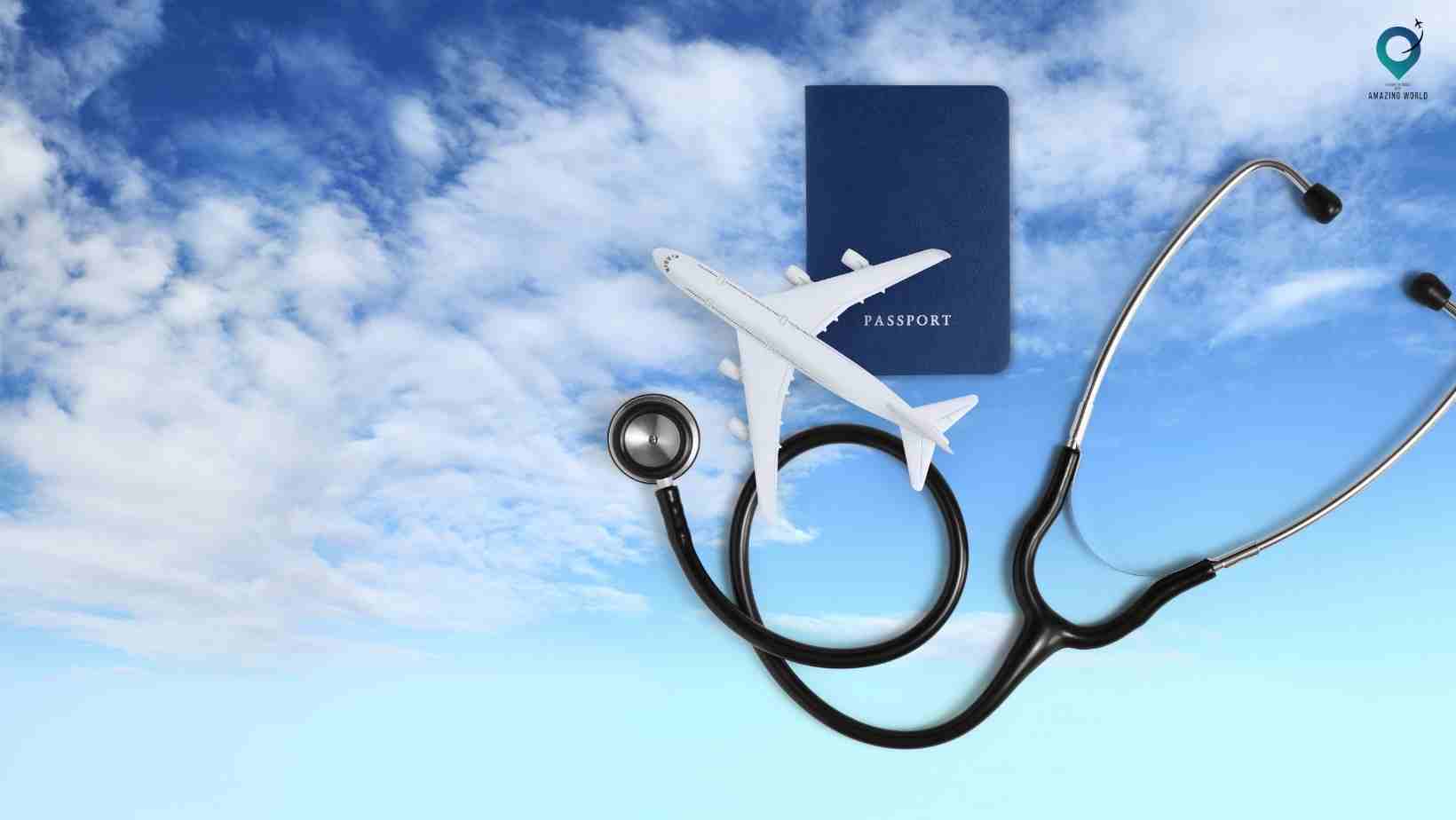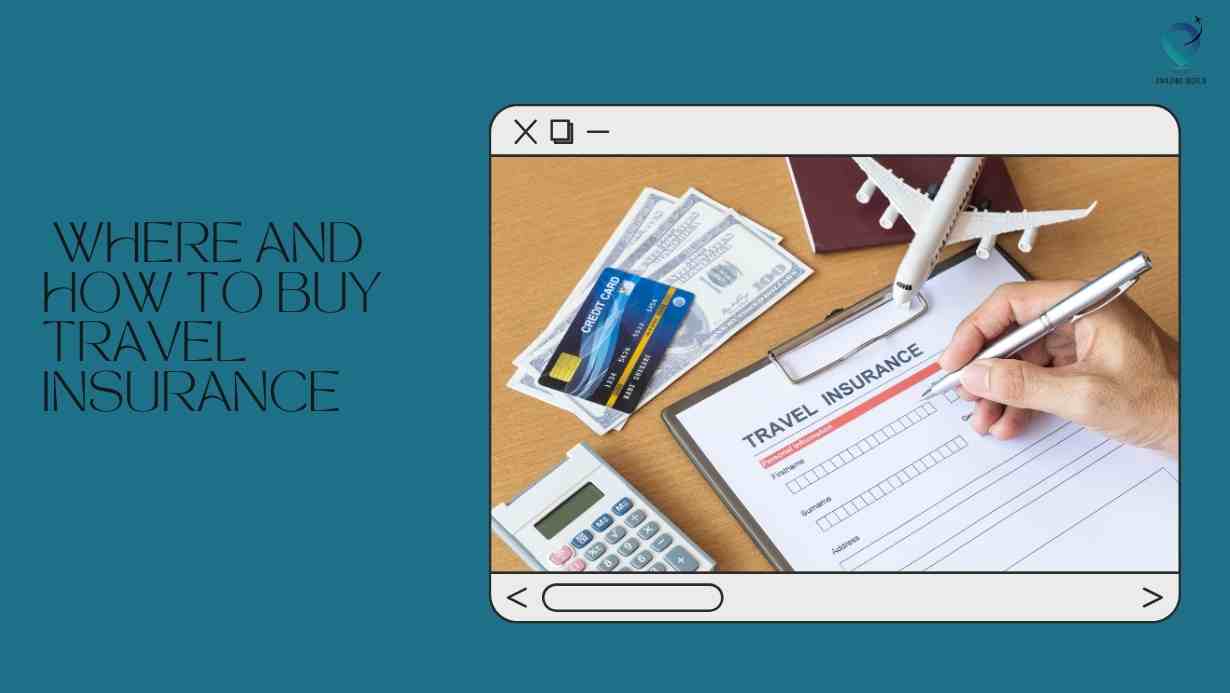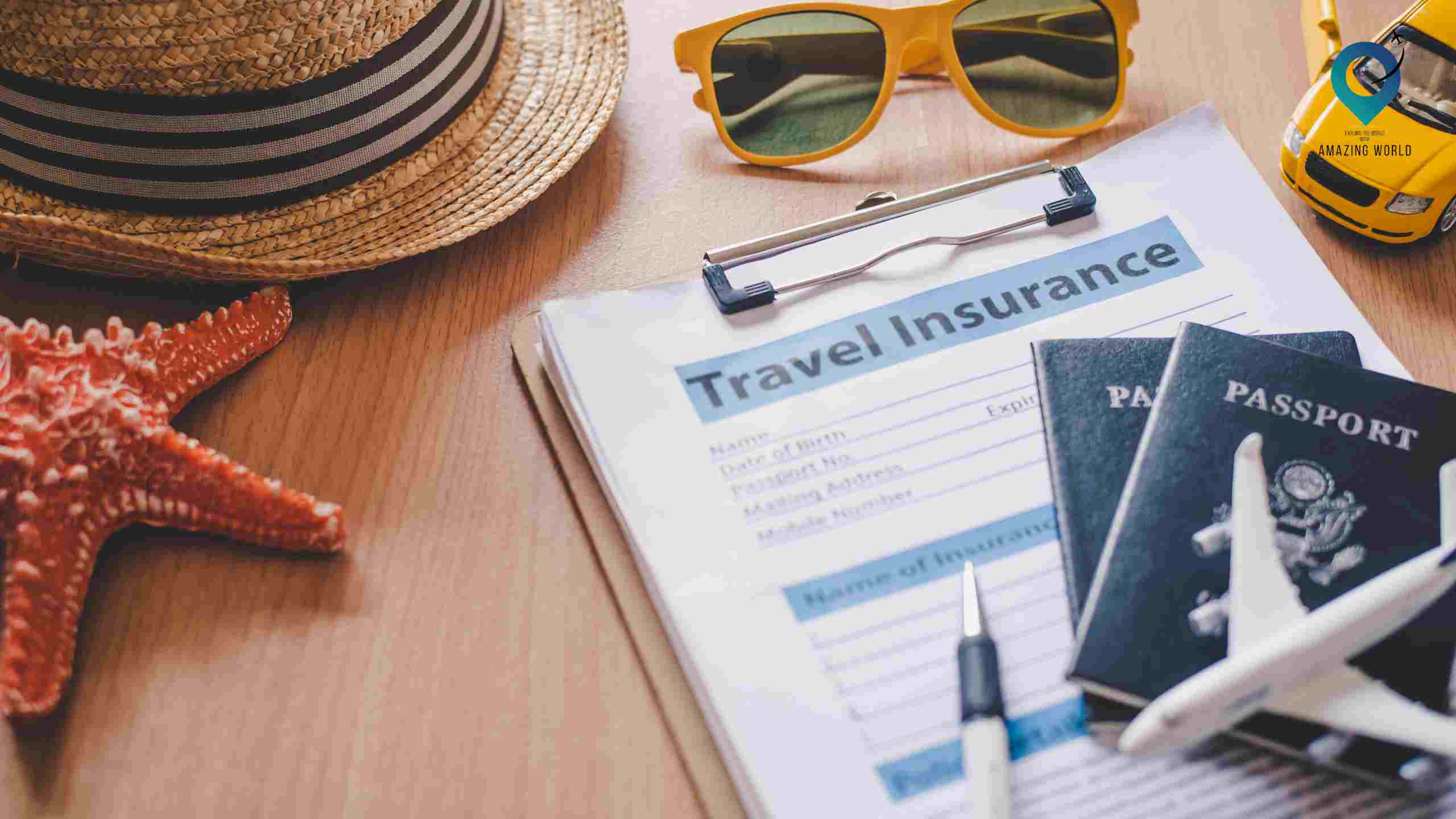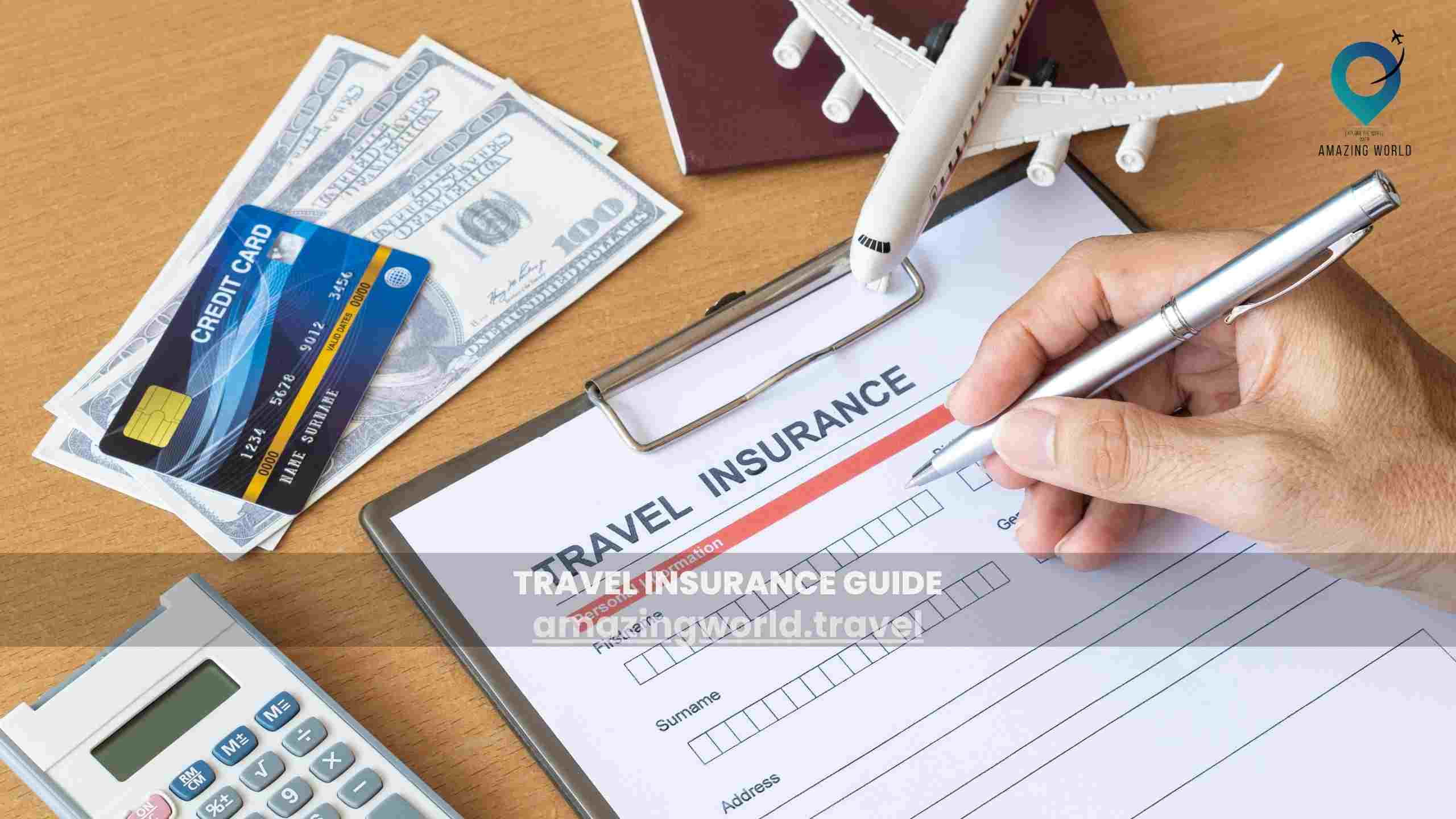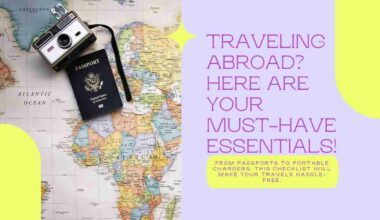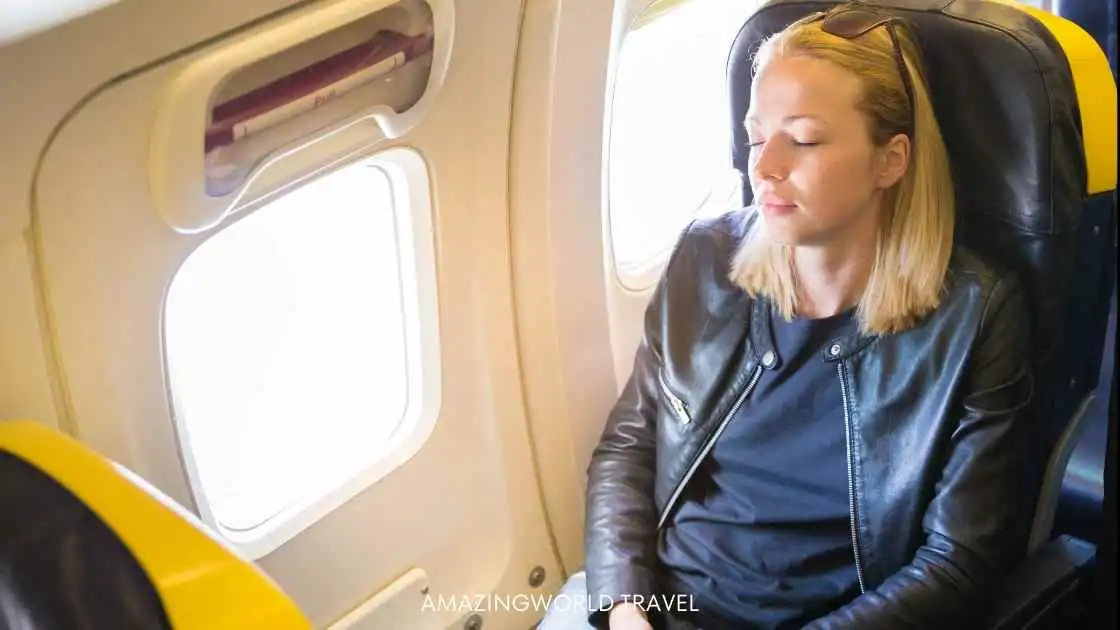The Best ways to save money on travel insurance
Are you preparing for an upcoming adventure but worried about the soaring costs of travel insurance? Exploring new horizons is thrilling, yet securing the right coverage without breaking the bank can be a daunting task. Fear not, as we unveil the ultimate guide to trimming down those hefty travel insurance expenses while ensuring you’re well-protected on your journeys.
As wanderlust beckons and the desire to explore new destinations grows, finding ways to economize on travel insurance becomes essential. In this comprehensive article, we’ll unravel savvy strategies that not only help you save money on your travel insurance but also guarantee peace of mind during your escapades.
Whether you’re a budget-conscious traveler or seeking the best value for your coverage, these tried-and-tested methods will pave the way for a cost-effective yet comprehensive travel insurance plan.
So, let’s embark on this journey together and discover the secrets to securing affordable yet reliable travel insurance without compromising on protection.
Also, if you are looking best hotels and Homestay deals then we recommend booking your hotels and homestay with priceline.com
What Does Travel Insurance Cover?
Travel insurance is like a safety net that protects you from various unexpected situations that can arise while traveling. It typically covers several key areas:
- Trip Cancellation or Interruption: This feature reimburses you for prepaid and non-refundable trip expenses if you have to cancel or cut short your trip due to covered reasons. These reasons could include illness, injury, or unexpected events like severe weather disrupting your plans.
- Medical Expenses: Travel insurance often includes coverage for emergency medical and dental expenses incurred while traveling. This coverage is especially crucial when you’re abroad and might need medical care, as it helps pay for hospital visits, medications, or emergency treatments.
- Baggage Loss or Delay: If your luggage gets lost, stolen, or delayed by the airline, travel insurance provides compensation. It helps cover the cost of essential items you might need while waiting for your belongings to be found or replaced.
- Emergency Evacuation: In cases of medical emergencies or situations where you need urgent medical care, travel insurance covers the cost of emergency evacuation to transport you to a suitable medical facility or back home if necessary.
- Travel Delay: If your travel is delayed for reasons beyond your control, such as a flight cancellation or severe weather, travel insurance can reimburse you for additional expenses incurred during the delay, such as accommodation or meals.
- Accidental Death or Dismemberment: In unfortunate events resulting in accidental death or the loss of limbs while traveling, some travel insurance policies provide benefits or compensation to your beneficiaries or yourself.
These coverages might differ depending on the specific policy and the insurance provider. It’s essential to review the details of a policy to understand precisely what it covers before purchasing it.
When Should You Buy Travel Insurance?
Deciding when to purchase travel insurance depends on various factors, ensuring you’re adequately covered without unnecessary expenses. Consider the following:
- At the Time of Booking: It’s advisable to buy travel insurance shortly after booking your trip. This early purchase can provide coverage for unexpected situations that might arise before your departure, such as trip cancellation due to illness or other covered reasons.
- Before Final Payments: If your trip involves significant upfront costs, such as non-refundable deposits or payments for flights or accommodations, securing travel insurance before making these payments ensures you’re protected if you need to cancel for covered reasons.
- For Pre-Existing Conditions: If you have pre-existing medical conditions that might affect your ability to travel or require medical attention during the trip, purchasing travel insurance that covers these conditions early is recommended. Some policies offer coverage waivers for pre-existing conditions if bought within a specific timeframe after booking.
- Based on Trip Cost: If your travel plans involve expensive bookings or high-value items, like luxury accommodations, cruise packages, or costly activities, getting insurance early helps safeguard these investments against unforeseen circumstances.
- Before the Start of Coverage Period: Ensure your travel insurance begins on the day your trip commences. Buying it in advance allows you to enjoy coverage for incidents that might occur leading up to your departure, like unexpected emergencies or trip cancellations.
- For Last-Minute Trips: Even for spontaneous or last-minute travel plans, it’s still beneficial to purchase travel insurance. While some coverages might not apply immediately for certain situations, having insurance in place can protect you during the trip.
- Considering Exclusions and Time Sensitivity: Certain benefits of travel insurance, like coverage for pre-existing medical conditions or cancel-for-any-reason options, might have specific time limits after booking, so it’s essential to be aware of these and purchase accordingly.
Choosing the right time to buy travel insurance depends on the nature of your trip, the coverage you need, and any potential risks you foresee. It’s always wise to review policy details and purchase it promptly to maximize its benefits.
How to Save Money on Travel Insurance
1. Compare quotes from multiple insurers
Comparing quotes from various insurance providers is a crucial step in finding the best coverage at the most competitive price. Here’s how you can do it:
- Online Comparison Tools: Utilize online platforms that allow you to compare insurance plans side by side. These tools help you easily assess different coverage options and their costs from multiple insurers.
- Review Coverage Details: While comparing quotes, ensure you’re comparing similar coverage types and limits. Look beyond just the price to understand what each policy offers and if it meets your specific travel needs.
- Consider Customer Reviews: Besides comparing prices, look into customer reviews and ratings for each insurer. A good balance between price and positive customer feedback can help in making an informed decision.
2. Buy early
Purchasing travel insurance early, ideally soon after booking your trip, can result in cost savings and broader coverage:
- Coverage for Pre-Departure Situations: Early purchase often provides coverage for unexpected events that might occur before your trip, such as trip cancellation due to illness or other covered reasons.
- Lock in Lower Premiums: Buying early might secure lower premiums, as insurers often base their pricing on factors like age, trip cost, and destination. Early purchase could potentially mean lower rates compared to last-minute buying.
3. Consider an annual policy
For frequent travelers, an annual travel insurance policy can be more cost-effective than purchasing insurance for each trip:
- Cost Efficiency: If you travel multiple times a year, an annual policy typically costs less than buying individual policies for each trip. It offers continuous coverage for all your travels within a year, potentially saving money in the long run.
- Convenience and Comprehensive Coverage: Annual policies often provide comprehensive coverage and convenience, eliminating the need to purchase insurance every time you travel.
4. Increase your deductible
Opting for a higher deductible can lower your premium cost:
- Understanding Deductibles: A deductible is the amount you’re responsible for before the insurance coverage kicks in. Choosing a higher deductible reduces the insurer’s risk and, therefore, lowers your premium. However, ensure you can comfortably afford the deductible in case you need to make a claim.
5. Bundle your travel insurance with other policies
Consider bundling your travel insurance with other insurance policies, such as home or auto insurance:
- Multi-Policy Discounts: Some insurers offer discounts when you bundle multiple insurance policies with them. Bundling travel insurance with other types of coverage might lead to cost savings or additional benefits.
6. Take advantage of discounts
Explore various discounts offered by insurers:
- Group or Family Discounts: Insurers often provide discounts for group travel or family policies. If traveling with others, inquire about group rates or family plans to save money.
- Special Discounts: Look out for special discounts based on factors like age, membership affiliations (such as AAA or AARP), student status, or loyalty programs.
By employing these strategies, travelers can potentially save money on travel insurance while ensuring adequate coverage for their trips. Always review policy details carefully to understand the terms and conditions associated with the coverage.
How to Choose the Right Travel Insurance Policy for You
1. Consider your destination
- Destination-specific Coverage: Different destinations may pose varying risks, such as higher healthcare costs, political instability, or natural disasters. Consider the specific coverage you might need based on your destination.
- Medical Coverage: If traveling internationally, especially to countries with high healthcare costs, ensure your policy provides adequate medical coverage, including emergency evacuation if needed.
- Travel Alerts and Advisories: Check travel advisories and alerts for your destination. Some insurers might adjust coverage or premiums based on the level of risk associated with certain destinations.
2. Consider the activities you’ll be doing
- Adventure or Extreme Sports: If your trip involves adventurous activities like skiing, scuba diving, or mountain climbing, ensure your insurance covers these specific activities. Some standard policies might exclude certain high-risk activities.
- Specialized Coverage: Certain activities might require additional specialized coverage, such as hazardous sports or activities with higher associated risks. Verify if your policy includes these or consider purchasing extra coverage if needed.
- Work-related Travel: If your trip involves business-related activities, ensure your policy covers work-related aspects like business equipment, professional liabilities, or trip cancellations due to work-related issues.
3. Consider your budget
- Balance Coverage and Cost: Determine the level of coverage you require versus what you can afford. While comprehensive coverage is essential, it’s also crucial to find a policy that fits within your budget.
- Compare Costs: Evaluate multiple insurance policies to find the best value for your money. Consider the coverage limits, deductibles, and exclusions while comparing prices to ensure you get the most suitable coverage at a reasonable price.
- Optimizing Cost with Needs: Prioritize coverage based on your specific needs. For instance, if medical coverage is a primary concern, allocate more of your budget towards a comprehensive medical coverage plan.
Remember, the right travel insurance policy varies for each individual and is based on their unique travel plans, preferences, and concerns. Carefully assessing these factors and understanding the fine print of each policy can help in choosing the most suitable coverage that aligns with your travel needs and budget constraints.
Tips for Filing a Travel Insurance Claim
1. File your claim as soon as possible
- Prompt Action: It’s crucial to initiate the claim process as soon as you encounter an incident that requires a claim. Most insurance companies have specific timelines within which claims must be filed after the occurrence of an incident, so acting swiftly is essential.
- Adherence to Timelines: Filing promptly ensures that you meet the insurer’s deadlines for reporting claims, preventing any potential issues with claim acceptance or delays in processing.
- Provide Necessary Details: When filing promptly, ensure to include all relevant details about the incident, including date, time, location, and circumstances, to support your claim.
2. Be prepared to provide documentation
- Gather Evidence: Collect all necessary documentation related to the incident. This could include medical reports, police reports (if applicable, such as for theft), receipts, invoices, and any other relevant documents supporting your claim.
- Policy Information: Have your travel insurance policy details readily available when filing a claim. Knowing your policy number, coverage details, and contact information for the insurer will streamline the process.
- Complete Claim Forms Accurately: Fill out claim forms accurately and thoroughly. Providing precise and detailed information helps expedite the claim processing.
3. Be patient
- Claim Processing Time: Understand that the processing time for claims can vary. Insurers need time to review submitted documents, assess the claim’s validity, and process the reimbursement.
- Follow-Up if Necessary: While patience is essential, it’s also acceptable to follow up with the insurance company if there are delays or if you require clarification or updates on your claim status.
- Communicate Clearly: Maintain clear and open communication with the insurance company. If there are additional documents or information required, promptly provide them to avoid unnecessary delays.
By adhering to these tips when filing a travel insurance claim, you increase the chances of a smoother and more efficient claims process. Timely action, proper documentation, and patience can significantly impact the speed and success of your claim.
Conclusion.
A conclusion for an article on travel insurance might summarize the key points discussed and emphasize the importance of securing adequate coverage while traveling. Here’s a possible conclusion:
“In conclusion, travel insurance stands as an essential safeguard for any traveler venturing near or far from home. Throughout this exploration, we’ve uncovered the critical aspects of travel insurance: from understanding its coverage—encompassing trip cancellations, medical emergencies, and baggage loss—to the strategic ways of saving money and selecting the most suitable policy for your specific needs.
Remember, the importance of travel insurance extends beyond monetary considerations. It offers peace of mind, ensuring that unforeseen events do not disrupt the joy of exploring new destinations or embarking on adventures.
Whether it’s considering your destination’s unique risks, tailoring coverage to match your activities, or even filing a claim promptly with the necessary documentation, each step plays a vital role in securing a worry-free travel experience.
How much did you like Our detailed Tips to save money on Travel Insurance? Review Also, please share these Blogs with your friends on social media.
Recommended
- 30+ Best Atlantic Beaches
- London Travel Guide
- Airplane Travel Tips
- Paris Travel Tips
- How to travel the world on a budget of $1,000

Meet David Hoper, a passionate travel Blog writer with 7+ years of experience in travel content. Through his exemplary storytelling and engaging narratives, he shares his experiences and brings destinations to life. With a keen eye for detail and a love for exploration, he has cultivated a diverse portfolio of travel blogs that inspire and inform readers worldwide.
